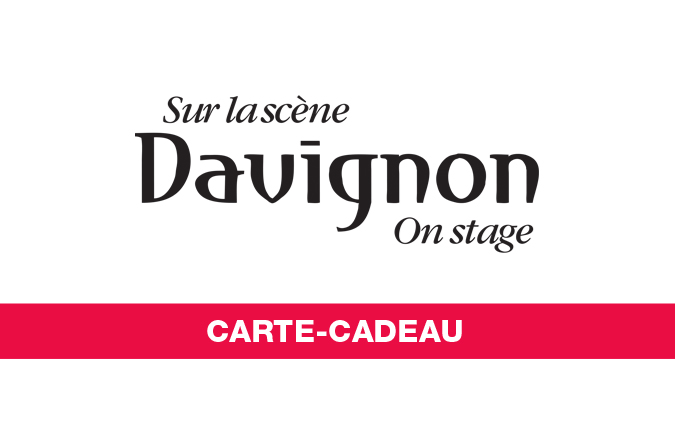
Leadesphere 2025
-
Collège militaire royal de Saint-Jean
15 rue Jacques-Cartier Nord, Saint-Jean-sur-Richelieu, QC, Canada
-
Teams (virtuel)
Microsoft Teams, Saint-Jean-sur-Richelieu, QC, Canada
Share this event
For more info about this event, please contact the event organizer, Collège militaire royal de Saint-Jean, at cmrsj-ap-pa@cmrsj-rmcsj.ca.
Buy Tickets
Royal Military College Saint-Jean is pleased to co-host this year’s event with the NATO Climate Change and Security Centre of Excellence on the theme “Turbulence: Canada in the midst of the climate crisis.”
The conference will be held on February 25, 2025, at Royal Military College Saint-Jean, in Saint-Jean-sur-Richelieu (Qc), in the Grand Fort room in the Dextraze Building. The event will also be held in hybrid format.
You prefer to attend remotely? Join us online on Teams.
Concept
In the Canadian context, the intersection of climate and security is particularly critical due to the country’s vast geography, diverse climate zones, and reliance on natural resources. By 2060, the impacts of climate changes on Canada’s social, economic, and environmental landscape will significantly influence national resilience and security strategies. The mounting challenges posed by climate change demand a proactive and forward-thinking approach to national security.
Climate security is not just about mitigating environmental risks; it encompasses safeguarding critical infrastructure, ensuring energy security, and responding to the cascading effects of climate-related disasters. Rising sea levels, increased frequency of extreme weather events, and melting Arctic ice are expected to strain Canada’s emergency response systems and the Canadian Armed Forces' operational capabilities. At the same time, global shifts in resource accessibility, migration patterns, and geopolitical alliances will further challenge Canada’s defence readiness.
The Leadersphere 2025 Conference will feature three engaging panels that bring climate security into focus. These panels include "Preparing Canada for the Consequences of Climate Changes," "Preparing Canada’s Defence Team for 2060," and "NATO in the Era of Climate Change." Each discussion will examine the multifaceted ways climate changes shapes Canada’s security priorities, from the direct threats of natural disasters to the broader geopolitical and societal transformations. These panels aim to connect the dots between the impacts of climate and national security, offering innovative ideas to tackle complex challenges.
Co-hosted by Royal Military College Saint-Jean and the NATO Centre of Excellence on Climate Change and Security, the event aims to foster dialogue and collaboration between experts, policymakers, and military leaders, with a view to providing a nuanced understanding of how Canada can navigate an uncertain future shaped by climate change.
Program
8:30 a.m. – 9:15 a.m. | Arrival and Registration
9:15 a.m. – 9:35 a.m. | Welcome Address
Colonel Guillaume Tremblay, CD, Commandant, Royal Military College Saint-Jean
Dr. Danic Parenteau, Ph.D., Acting Academic Director, Royal Military College Saint-Jean
Mr. Mathieu Bussières, Director, NATO Climate Change and Security Centre of Excellence
Dr. Alexandre Giguère, Ph.D., Assistant Professor, Royal Military College Saint-Jean, co-organizer of the conference
9:40 a.m. – 10:40 a.m. | Keynote Speaker: Mrs. Anne Shibata Casselman, M.Sc. Science Communication, B.Sc. Zoology
Moderator: Dr. Alexandre Giguère, Assistant Professor, Royal Military College Saint-Jean, co-organizer of the conference
“Canada in the Year 2060”
Anne Shibata Casselman reports science, environment and public interest stories for outlets like Maclean’s, The Walrus, National Geographic, Scientific American, Canadian Geographic, among others. Her piece “Canada in the Year 2060” received the Gold Medal for long-form feature writing at the National Magazine Awards. She holds a Masters in Science Communication from Imperial College London and currently lives in Vancouver, Canada.
10:40 a.m. – 11 a.m. | Coffee Break
11 a.m. – 12:20 p.m. | Panel 1 - Preparing Canada for the consequences of climate changes
As Canada faces rising sea levels, increased extreme weather events, and melting Arctic ice, the strain on emergency response systems and military operational capabilities will grow. This panel will explore strategies to strengthen cooperation, ensuring readiness for the cascading impacts of climate-related disasters on infrastructure, energy security, and public safety. By fostering dialogue among experts, policymakers, and military leaders, the session aims to provide innovative solutions to navigate the complex intersection of climate change and security in Canada.
Moderator: Dr. Élisabeth Vallet, Associate Professor, Royal Military College Saint-Jean
Dr. Will Greaves, Associate Professor of International Relations, University of Victoria ; Co-Director, Canadian Defence and Security Network ; Co-Director, Climate Change and the Environment, Network for Strategic Analysis, and Coordinator, North American and Arctic Defence and Security Network
Dr. Hengameh Irandoust, Defence Scientist, NATO Centre of Excellence on Climate Change and Security
Major-General Simon Bernard, OMM, CD, Deputy Commander, Canadian Joint Operations Command
Dr. Michel C. Doré, OStJ, B. Sc.N, TAP, CEM, CGU, Associate Professor, Department of Geography, Université du Québec à Montréal, and National Emergency Management Coordinator, St. John Ambulance Canada
Mr. François Poulet, Acting Regional Director, Public Safety Canada, Quebec and Nunavut Region
12:20 p.m. – 1:30 p.m. | Lunch
1:30 p.m. – 2:50 p.m. | Panel 2 - Preparing Canada's Defence Team for 2060
By 2060, climate change is expected to reshape global resource accessibility, migration patterns, and geopolitical alliances, significantly influencing defence priorities. The panel will address the evolving role of the military in safeguarding critical infrastructure, responding to complex emergencies, and navigating the broader societal transformations driven by climate change. Through forward-thinking discussions, experts, policymakers, and military leaders will outline innovative approaches to building a Defence Team that is resilient, adaptable, and prepared for the uncertainties of a climate-altered world. This session focuses on equipping the Canadian Armed Forces with the tools, strategies and mindset needed to adapt to an increasingly volatile future.
Moderator: Dr. Sarah-Myriam Martin-Brûlé, Full Professor, Bishop University
Dr. Brad Wallace, Defence Scientist, Defence Research and Development Canada
Brigadier-General Dan Rivière, CD, Commander Joint Task Force (North)
Dr. Simon Dalby, Professor Emeritus of Geography and Environmental Studies, Wilfrid Laurier University, Online Presentation
Mrs. Élise Godin, A/Executive Director - Special Project, Assistant Deputy Minister (Infrastructure & Environment), Department of National Defence
2:50 p.m. – 3:10 p.m. | Coffee Break
3:10 p.m. – 4:30 p.m. | Panel 3 - NATO in the era of climate change
This panel delves into NATO's evolving role in addressing the security implications of climate change. The discussion will examine how climate change reshapes collective defence, global stability, and the security environment, particularly in Canada and beyond, highlighting NATO's efforts to enhance resilience and adapt military operations in response to climate-induced risks.
Moderator: Dr. Tom Deligiannis, Wilfrid Laurier University
Dr. Katie Woodward, Deputy Head of Research, Analysis and Lessons, NATO Climate Change and Security Centre of Excellence
Dr. Bruno Charbonneau, Full Professor of International Studies, Royal Military College Saint-Jean; Senior Scientific Advisor, NATO Climate Change and Security Centre of Excellence, and Director, Centre FrancoPaix for Peace Missions and Humanitarian Studies, Raoul Dandurand Chair, Université du Québec à Montréal.
M. Paul Rushton, Officer, Climate and Energy Security Section, Innovation, Hybrid and Cyber Division, NATO
Mrs. Jordan Koop, Senior Policy Adviser, Climate Change and Security, Defence and Security Relations, Global Affairs Canada
Dr. Kerry Lynn Nankivell, Director, NATO & Europe Policy National Defence, ADM (Policy), National Defence
4:30 p.m. - 5 p.m. | Closing Remarks and Thanks
5 p.m. – 6 p.m. | Cocktail
Royal Military College Saint-Jean is pleased to co-host this year’s event with the NATO Climate Change and Security Centre of Excellence on the theme “Turbulence: Canada in the midst of the climate crisis.”
The conference will be held on February 25, 2025, at Royal Military College Saint-Jean, in Saint-Jean-sur-Richelieu (Qc), in the Grand Fort room in the Dextraze Building. The event will also be held in hybrid format.
You prefer to attend remotely? Join us online on Teams.
Concept
In the Canadian context, the intersection of climate and security is particularly critical due to the country’s vast geography, diverse climate zones, and reliance on natural resources. By 2060, the impacts of climate changes on Canada’s social, economic, and environmental landscape will significantly influence national resilience and security strategies. The mounting challenges posed by climate change demand a proactive and forward-thinking approach to national security.
Climate security is not just about mitigating environmental risks; it encompasses safeguarding critical infrastructure, ensuring energy security, and responding to the cascading effects of climate-related disasters. Rising sea levels, increased frequency of extreme weather events, and melting Arctic ice are expected to strain Canada’s emergency response systems and the Canadian Armed Forces' operational capabilities. At the same time, global shifts in resource accessibility, migration patterns, and geopolitical alliances will further challenge Canada’s defence readiness.
The Leadersphere 2025 Conference will feature three engaging panels that bring climate security into focus. These panels include "Preparing Canada for the Consequences of Climate Changes," "Preparing Canada’s Defence Team for 2060," and "NATO in the Era of Climate Change." Each discussion will examine the multifaceted ways climate changes shapes Canada’s security priorities, from the direct threats of natural disasters to the broader geopolitical and societal transformations. These panels aim to connect the dots between the impacts of climate and national security, offering innovative ideas to tackle complex challenges.
Co-hosted by Royal Military College Saint-Jean and the NATO Centre of Excellence on Climate Change and Security, the event aims to foster dialogue and collaboration between experts, policymakers, and military leaders, with a view to providing a nuanced understanding of how Canada can navigate an uncertain future shaped by climate change.
Program
8:30 a.m. – 9:15 a.m. | Arrival and Registration
9:15 a.m. – 9:35 a.m. | Welcome Address
Colonel Guillaume Tremblay, CD, Commandant, Royal Military College Saint-Jean
Dr. Danic Parenteau, Ph.D., Acting Academic Director, Royal Military College Saint-Jean
Mr. Mathieu Bussières, Director, NATO Climate Change and Security Centre of Excellence
Dr. Alexandre Giguère, Ph.D., Assistant Professor, Royal Military College Saint-Jean, co-organizer of the conference
9:40 a.m. – 10:40 a.m. | Keynote Speaker: Mrs. Anne Shibata Casselman, M.Sc. Science Communication, B.Sc. Zoology
Moderator: Dr. Alexandre Giguère, Assistant Professor, Royal Military College Saint-Jean, co-organizer of the conference
“Canada in the Year 2060”
Anne Shibata Casselman reports science, environment and public interest stories for outlets like Maclean’s, The Walrus, National Geographic, Scientific American, Canadian Geographic, among others. Her piece “Canada in the Year 2060” received the Gold Medal for long-form feature writing at the National Magazine Awards. She holds a Masters in Science Communication from Imperial College London and currently lives in Vancouver, Canada.
10:40 a.m. – 11 a.m. | Coffee Break
11 a.m. – 12:20 p.m. | Panel 1 - Preparing Canada for the consequences of climate changes
As Canada faces rising sea levels, increased extreme weather events, and melting Arctic ice, the strain on emergency response systems and military operational capabilities will grow. This panel will explore strategies to strengthen cooperation, ensuring readiness for the cascading impacts of climate-related disasters on infrastructure, energy security, and public safety. By fostering dialogue among experts, policymakers, and military leaders, the session aims to provide innovative solutions to navigate the complex intersection of climate change and security in Canada.
Moderator: Dr. Élisabeth Vallet, Associate Professor, Royal Military College Saint-Jean
Dr. Will Greaves, Associate Professor of International Relations, University of Victoria ; Co-Director, Canadian Defence and Security Network ; Co-Director, Climate Change and the Environment, Network for Strategic Analysis, and Coordinator, North American and Arctic Defence and Security Network
Dr. Hengameh Irandoust, Defence Scientist, NATO Centre of Excellence on Climate Change and Security
Major-General Simon Bernard, OMM, CD, Deputy Commander, Canadian Joint Operations Command
Dr. Michel C. Doré, OStJ, B. Sc.N, TAP, CEM, CGU, Associate Professor, Department of Geography, Université du Québec à Montréal, and National Emergency Management Coordinator, St. John Ambulance Canada
Mr. François Poulet, Acting Regional Director, Public Safety Canada, Quebec and Nunavut Region
12:20 p.m. – 1:30 p.m. | Lunch
1:30 p.m. – 2:50 p.m. | Panel 2 - Preparing Canada's Defence Team for 2060
By 2060, climate change is expected to reshape global resource accessibility, migration patterns, and geopolitical alliances, significantly influencing defence priorities. The panel will address the evolving role of the military in safeguarding critical infrastructure, responding to complex emergencies, and navigating the broader societal transformations driven by climate change. Through forward-thinking discussions, experts, policymakers, and military leaders will outline innovative approaches to building a Defence Team that is resilient, adaptable, and prepared for the uncertainties of a climate-altered world. This session focuses on equipping the Canadian Armed Forces with the tools, strategies and mindset needed to adapt to an increasingly volatile future.
Moderator: Dr. Sarah-Myriam Martin-Brûlé, Full Professor, Bishop University
Dr. Brad Wallace, Defence Scientist, Defence Research and Development Canada
Brigadier-General Dan Rivière, CD, Commander Joint Task Force (North)
Dr. Simon Dalby, Professor Emeritus of Geography and Environmental Studies, Wilfrid Laurier University, Online Presentation
Mrs. Élise Godin, A/Executive Director - Special Project, Assistant Deputy Minister (Infrastructure & Environment), Department of National Defence
2:50 p.m. – 3:10 p.m. | Coffee Break
3:10 p.m. – 4:30 p.m. | Panel 3 - NATO in the era of climate change
This panel delves into NATO's evolving role in addressing the security implications of climate change. The discussion will examine how climate change reshapes collective defence, global stability, and the security environment, particularly in Canada and beyond, highlighting NATO's efforts to enhance resilience and adapt military operations in response to climate-induced risks.
Moderator: Dr. Tom Deligiannis, Wilfrid Laurier University
Dr. Katie Woodward, Deputy Head of Research, Analysis and Lessons, NATO Climate Change and Security Centre of Excellence
Dr. Bruno Charbonneau, Full Professor of International Studies, Royal Military College Saint-Jean; Senior Scientific Advisor, NATO Climate Change and Security Centre of Excellence, and Director, Centre FrancoPaix for Peace Missions and Humanitarian Studies, Raoul Dandurand Chair, Université du Québec à Montréal.
M. Paul Rushton, Officer, Climate and Energy Security Section, Innovation, Hybrid and Cyber Division, NATO
Mrs. Jordan Koop, Senior Policy Adviser, Climate Change and Security, Defence and Security Relations, Global Affairs Canada
Dr. Kerry Lynn Nankivell, Director, NATO & Europe Policy National Defence, ADM (Policy), National Defence
4:30 p.m. - 5 p.m. | Closing Remarks and Thanks
5 p.m. – 6 p.m. | Cocktail
Free Parking.
Anne Shibata Casselman
Anne Shibata Casselman reports science, environment and public interest stories for outlets like Maclean’s, The Walrus, National Geographic, Scientific American, Canadian Geographic, among others. Her piece “Canada in the Year 2060” received the Gold Medal for long-form feature writing at the National Magazine Awards. She holds a Masters in Science Communication from Imperial College London and currently lives in Vancouver, Canada.
Maclean's Article - https://macleans.ca/society/environment/canada-in-the-year-2060/
















